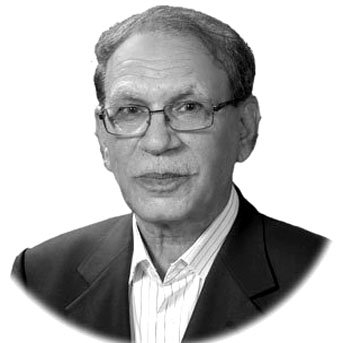Mohammad Jamil
TALIBAN’S spokesperson has said that the draft peace agreement with the United States has been circulated among members of the Shura, and it would take a while to take commanders into confidence. The Taliban is hopeful of another tenure in the government as the proposed peace agreement could see an end to the 18-year-old Afghan war and departure of the US and coalition troops by the end of 2020. However, the Taliban will be bound not to allow Al-Qaeda and other transnational militant groups to orchestrate international terrorism out of Afghanistan. In return, the US will have to agree to push other groups to amend the constitution and revamp the Afghan army. Overtime, the Taliban leadership has learned the ropes, and there is every possibility that it would agree stationing of a small contingent to oversee that groups other than the Taliban also to implement the agreement in letter and spirit.
AFP reported that discussions lasted into the night on August 27 as Taliban and US representatives were seen “shuttling between the two sides’ negotiating teams clutching papers.” The Taliban had earlier announced that technical points of an agreement with the United States were being finalized. During the 9 round of dialogue US special envoy to Afghanistan Zalmay Khalilzad tweeted: “We will defend Afghan forces now and after any agreement with the Talib. All sides agree Afghanistan’s future will be determined in intra-Afghan negotiations.” Previous rounds of US-Taliban negotiations focused on issues including a US troop withdrawal, a cease-fire, intra-Afghan negotiations to follow, and guarantees by the militant group not to harbor terrorist groups. The Taliban has so far rejected holding direct talks with the Afghan government, as it could give legitimacy to it. The Taliban has said a news conference would be called to announce any deal reached with the US.
Key issues in last week’s talks, which began a day after US special envoy Zalmay Khalilzad arrived in Doha, remain the withdrawal of US and other foreign forces from the country and a commitment by the Taliban that Afghanistan will not be used as a launch pad for global attacks. The two sides entered peace negotiations in October last year, and an agreement on these two central issues would set the stage for separate negotiations between Afghan officials and the Taliban on a permanent ceasefire and a power-sharing government. But the US will have to exert pressure on the components of Afghan government and President Ashraf Ghani to address Taliban’s concerns, as it had done when the US had pressurized and warned Ashraf Ghani to accept Abdullah Abdullah as Chief Executive otherwise there would be reelection because of allegations of fraud in the elections..
Afghans are hopeful that a peace deal between the Taliban and the U.S. will bring them a step closer to the end of the country’s four decades of conflict. This protracted state of war has resulted in the loss of countless lives; mass displacement; and the destruction of infrastructure and the education and justice systems, the consequences of which would be felt for generations to come. In fact, there is a realization on the part of the Taliban that the US is determined to withdraw from Afghanistan, and it would like to have support of the US to have a fair deal. Talking to Al Jazeera, Taliban spokesman said: “This round of talks has been very productive and we are near to an agreement that will be finalized and hopefully announced in the next coming weeks”. It appears that peace has never been closer in Afghanistan since the talks began in 2018.
Despite the ongoing talks, the Taliban has continued to stage attacks that mainly target Afghan forces and government officials but resulted in civilian casualties also. On the occasion of Eid-ul-Azha, Khalilzad had said, “I know Afghans yearn for peace. We stand with them and are working hard toward a lasting and honorable peace agreement and a sovereign Afghanistan, which poses no threat to any other country”. The Taliban’s message on the occasion had expressed the hope that future celebrations would unfold without occupation, under an environment of permanent peace and unity”. The Taliban has long refused to negotiate with the Afghan government, which has repeatedly invited the group for talks with no success. Washington initially tried to get the Taliban to agree to talking with Kabul, too. But when the Taliban refused to do so, the US was left with no option but to enter into talks with it.
In July, dozens of high-profile Afghan politicians and civil society activists, including women, met the Taliban in Doha for a two-day intra-Afghan dialogue. These talks, sponsored by Qatar and Germany, ended with a call by both sides to reduce civilian casualties to zero. Dawood Azami, an academic and journalist who works as a multimedia editor at BBC World Service in London, said the lack of consensus in Kabul and the failure of the Afghan government to agree on the appointment of an inclusive team to negotiate with the Taliban would prove a major challenge and could result in a breakdown. Anyhow, the Taliban now controls or holds influence over more Afghan territory than at any point since 2001. According to reports 50% of the districts are under Afghan government’s control; other districts are either under the Taliban control or remain contested – controlled by neither the Afghan government nor the Taliban.
—The writer is a senior journalist based in Lahore.










